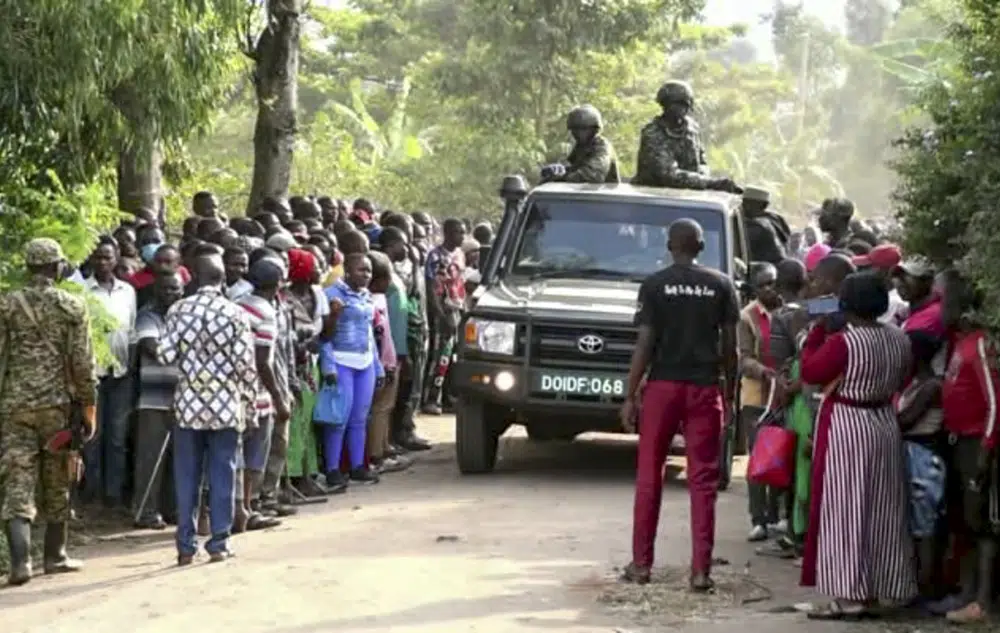The International Criminal Court (ICC) has made a historic decision, awarding over €52m ($56m; £44.5m) to victims of Ugandan warlord Dominic Ongwen. The order, which covers almost 50,000 individuals, including former child soldiers and children born from rapes and forced marriages, marks a significant step towards justice and reparations for those affected by Ongwen’s atrocities.
Ongwen, a brutal rebel commander in the Lord’s Resistance Army (LRA), is currently serving a 25-year prison term in Norway for multiple war crimes and crimes against humanity. Abducted as a child and forcibly conscripted into the LRA, he later rose through the ranks to become one of the leaders of the notorious rebel group. Despite his arguments that he should also be considered a victim, the court rejected this argument during his trial.
The crimes committed by Ongwen’s rebel fighters, who terrorized northern Uganda in the early 2000s, included unimaginable acts of violence and depravity. To address the extensive harm caused, Presiding Judge Bertram Schmitt awarded each victim €750 ($812; £642) as part of a comprehensive compensation package.
Judge Schmitt emphasized the different forms of harm experienced by the victims, including physical, moral, material, community, and transgenerational harm. The remaining funds from the €52m will be allocated to collective reparations, aiming to rehabilitate and rebuild shattered lives through projects specifically designed for this purpose.
This landmark decision is a reminder of the impact the LRA had on affected communities in Uganda. During the hearing, a comprehensive list of Ongwen’s ruthless acts was read out, including harrowing instances of sexual and gender-based violence. These atrocities included the use of cooking sticks to rape women while their husbands were forced to watch, the abandonment of crying babies in bushes, women and girls being distributed as sexual slaves, and the enforced inclusion of women and girls in forced marriages or after rape.
Child soldiers were also among Ongwen’s victims, forcibly kidnapped and trained to kill. The court recognized that tens of thousands of individuals had suffered unimaginable harm as Ongwen’s rebel fighters launched attacks on four displaced persons’ camps in northern Uganda. Entire communities and families witnessed the atrocities, leaving villages strewn with the bodies of the victims.
While the ICC’s decision is a significant step towards reparations, the court acknowledges that distribution of the funds will take time and that priority will be given to the most vulnerable individuals with the greatest need. Ongwen, who has been declared indigent, will have the funds come from the Trust Fund for Victims, which relies on voluntary contributions from ICC member states and other donors.
During the hearing, Judge Schmitt highlighted that the trust currently lacks enough funds to cover the full €52m reparations. He called upon countries, organizations, corporations, and private individuals to support the mission of the Trust Fund and contribute towards achieving justice and healing for the victims.
By September 2024, a compensation plan must be submitted to the ICC for further action. The ICC, located in The Hague, Netherlands, was established to prosecute war crimes, crimes against humanity, and genocide. The court believes that reparations not only serve as a tangible form of support but also symbolize hope and resilience within war-ravaged communities, demonstrating the ICC’s commitment to restorative justice.
The compensation awarded by the ICC signifies an important step towards acknowledging the suffering endured by Ongwen’s victims and providing them with the necessary resources to rebuild their lives. It is hoped that this landmark decision will contribute to the ongoing process of healing and reconciliation in Uganda, offering a glimmer of hope for those affected by the LRA’s reign of terror.





